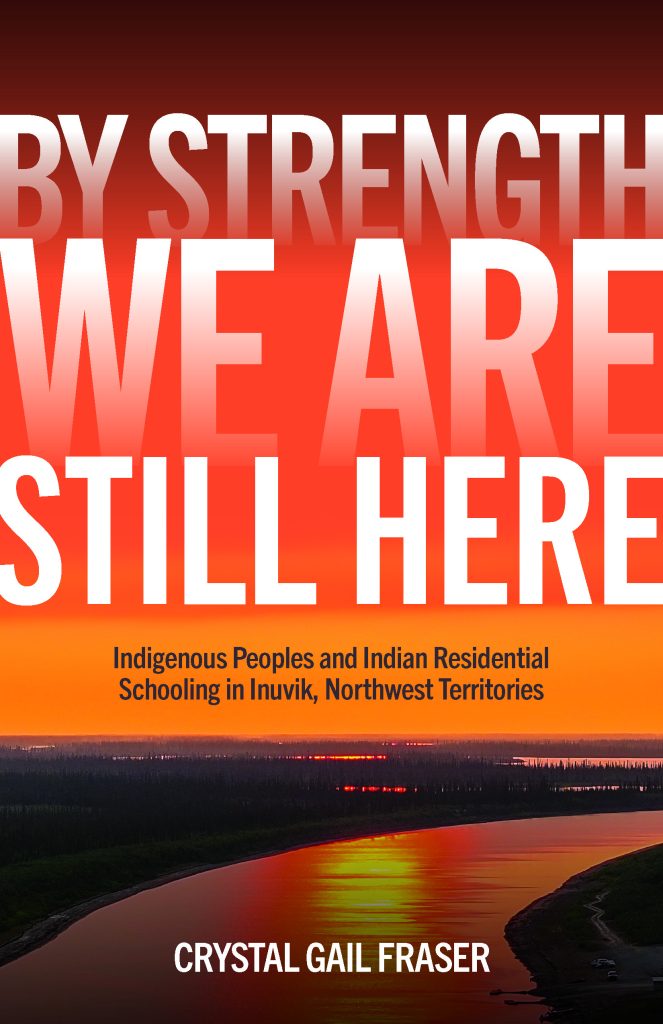
What was your goal while writing this book?
My goal was to document and centre the voices of Indigenous Peoples in the North—particularly Gwich’in and Inuvialuit Survivors—in the history of Indian residential schooling in Inuvik, Northwest Territories. I wanted to write a book that placed northern Indigenous experiences at the heart of Canadian history, while also honouring the stories of strength, care, and survival that allowed families and communities to endure. Too often, histories of residential schooling are written about people rather than with them. My aim was to contribute to truth-telling in a way that would resonate with Survivors, descendants, general readers, and scholars alike, and to insist that these histories matter for our collective future.
Was there a book or piece of writing that made you want to pursue writing as a career? What was it?
The publications from my own nation—of the Gwich’in Social and Cultural Institute and the Department of Cultural Heritage, Gwich’in Tribal Council—were pivotal for me, especially Gwichyà Gwich’in Googwandak: The History and Stories of the Gwichyà Gwich’in and Our Whole Gwich’in Way of Life Has Changed: Stories from the People of the Land. These books demonstrated how research, when done in close partnership with Elders and communities, could protect knowledge, honour oral histories, and make Gwich’in voices accessible to future generations. Seeing my own relatives and community members represented in those pages showed me the power of writing to safeguard histories that might otherwise be lost. They were proof that scholarship could be accountable, collaborative, and deeply rooted in place — and they inspired me to take up writing as both a career and a responsibility.
Who or what were your influences while writing this book?
The most important influences were Survivors and their families, who shared their stories with me—sometimes painful, sometimes full of humour and resilience. Their generosity and courage guided every decision I made. I was also influenced by Indigenous scholars and community-based researchers who insist on accountability to the people whose histories we write. Finally, my own family, Elders, and Gwich’in heritage shaped how I understood the responsibility of carrying these stories forward.
What is one thing you learned while writing this book you wish everyone knew?
One thing I learned—and that I wish everyone in Canada knew—is that residential schooling in the North lasted much longer, and in different forms, than many people realize. The last federally run residential school in Canada closed in Inuvik in 1996. For families like mine, this isn’t “distant history” but living memory. Recognizing this truth changes how we think about reconciliation: it’s not about the past, it’s about the present and future.
Tell me a bit about why writing about Canada or Canadians is important to you?
Writing about Canada is important because it means engaging honestly with the truths of this country’s past and present. Residential schools are not just Indigenous history—they are Canadian history. To move forward, we must confront the ongoing legacies of colonialism, listen to Survivors, and recognize how these histories continue to shape families and communities today. Writing about Canada is therefore part of the work of truth and reconciliation: it is about ensuring that Canadians understand their responsibilities, and that these truths are never forgotten or denied.

